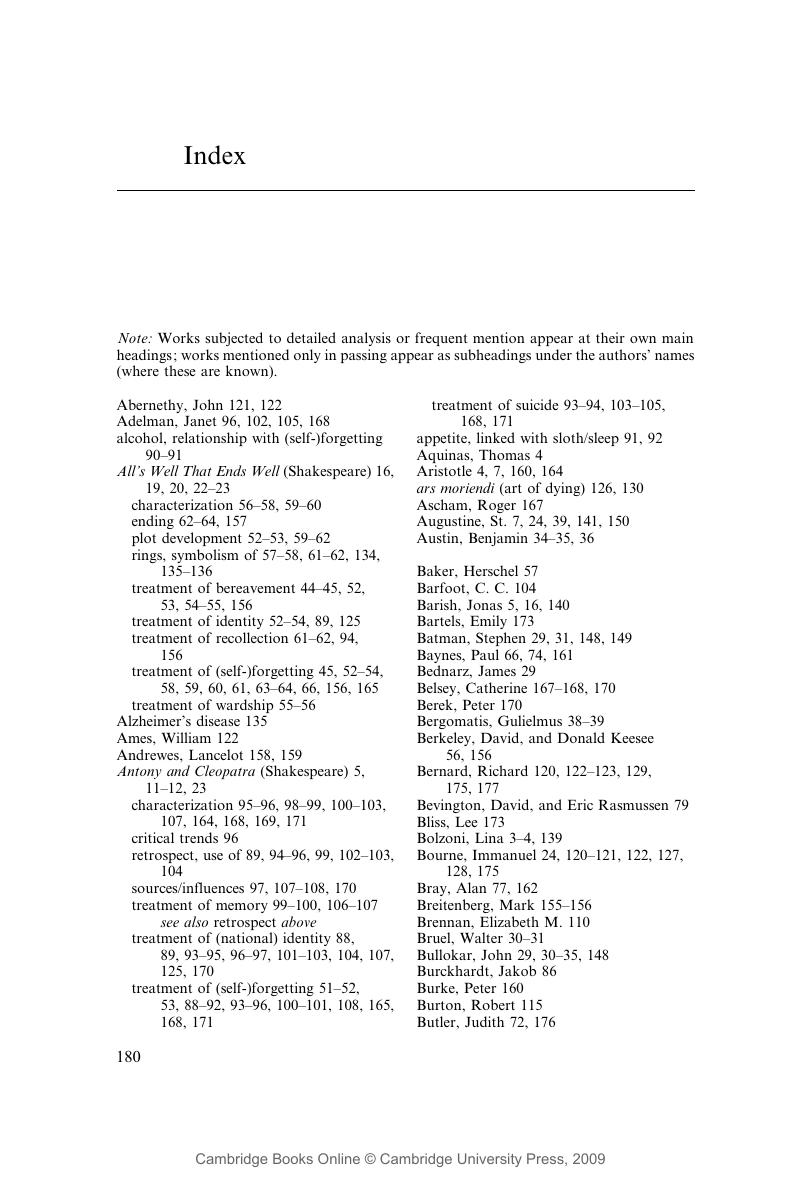Book contents
- Frontmatter
- Contents
- Acknowledgments
- Introduction: planting oblivion
- 1 Embodying oblivion
- 2 “Be this sweet Helen's knell, and now forget her”: forgetting and desire in All's Well That Ends Well
- 3 “If he can remember”: spiritual self-forgetting and Dr. Faustus
- 4 “My oblivion is a very Antony”
- 5 Sleep, conscience and fame in The Duchess of Malfi
- 6 Coda: “Wrought with things forgotten”
- Notes
- Index
- Cambridge Studies in Renaissance Literature and Culture
Index
Published online by Cambridge University Press: 09 October 2009
- Frontmatter
- Contents
- Acknowledgments
- Introduction: planting oblivion
- 1 Embodying oblivion
- 2 “Be this sweet Helen's knell, and now forget her”: forgetting and desire in All's Well That Ends Well
- 3 “If he can remember”: spiritual self-forgetting and Dr. Faustus
- 4 “My oblivion is a very Antony”
- 5 Sleep, conscience and fame in The Duchess of Malfi
- 6 Coda: “Wrought with things forgotten”
- Notes
- Index
- Cambridge Studies in Renaissance Literature and Culture
Summary

- Type
- Chapter
- Information
- Memory and Forgetting in English Renaissance DramaShakespeare, Marlowe, Webster, pp. 180 - 184Publisher: Cambridge University PressPrint publication year: 2005

